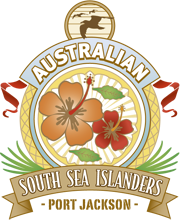Sugar Slaves: Australian South Sea Islanders are descendants of the Pacific Islands Blackbird trade.
Australian South Sea Islanders are descendants of the Pacific Islands Blackbird trade that started in NSW 1847 by Benjamin Boyd then the influx to QLD in 1863. Between 1863 and 1904 about 60,000 Pacific Islanders were transported to Queensland, where they toiled to create the sugar plantations of the far north.
Some of these islanders moved there willingly on the promise of income, whilst others were kidnapped from their island homes. Pacific Islanders were ‘recruited’ from various islands including the Solomon Islands, Vanuatu (then the New Hebrides) and the Loyalty Islands of New Caledonia. This human trafficking is euphemistically known as ‘blackbirding’.
The Islanders worked in harsh conditions in the Queensland sugar fields, conditions were akin to slavery. According to the Department of the Premier and Cabinet, conditions varied from plantation to plantation depending on how considerate the owners and overseers were. Abuse of the Islanders included being beaten, being deprived of food or leisure time, medical neglect and sometimes separation of married couples.
In the late 19th century trade unions in Australia were fighting for workers’ rights but the Pacific Islander workers of Queensland were banned from organising as a group. They were forbidden by law from striking and from leaving their place of employment. Workers who left without permission or ‘absconded’ faced three months imprisonment. Because the Pacific Islanders were paid so poorly compared to other unskilled workers in Australia, they were seen by some as a threat to employment.
Opposition to these non-white immigrants came in some cases from those involved in the labour movement. They did not object when the Commonwealth decided to deport most Pacific Islanders between 1904 and 1908 as part of the implementation of the Immigration Restriction Act 1901 (often referred to as the ‘White Australia policy’).
In the southern states of Australia there were others, including those in labour movement, who took a different view and called for fair treatment of the Pacific Island workers.
After Federation a few thousand Pacific Islanders were not deported and were permitted to remain in Australia.
Today north Queensland is home to more than 20,000 of their descendants. The Call for Recognition: a report on the situation of Australian South Sea Islanders, Human Rights and Equal Opportunity Commission, 1992 – cited in ‘The Call for Recognition’, Department of the Premier and Cabinet (Queensland) which has still not been actioned in the twenty first century.
